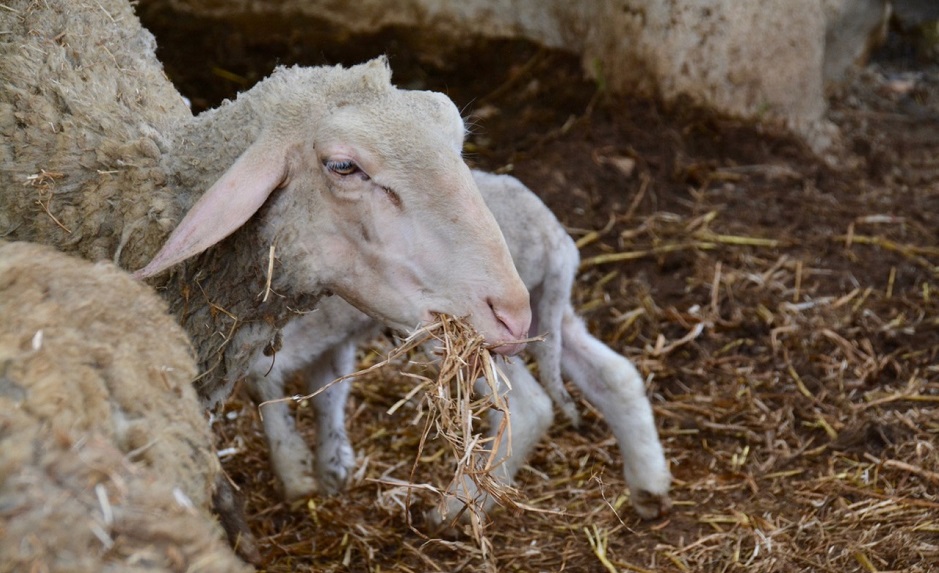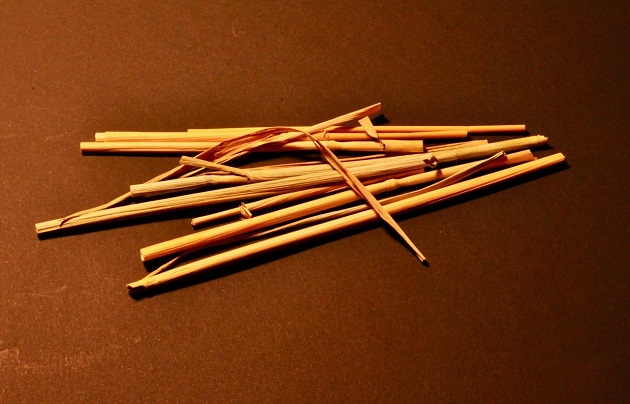In the Bible, this vegetation appears as a symbol of human inconsistency, as the wicked are described as “straw which the wind drives away”.
 Photo: Antonio Cruz
Photo: Antonio Cruz
We have both straw and fodder for our donkeys and bread and wine for ourselves your servants—me, the woman and the young man with us. We don’t need anything.” (Jue. 19:19)
Why do you see the speck that is in your brother's eye, but do not notice the log that is in your own eye? (Mt. 7:3)
“Straw” is the term used for the dry stems of certain types of grass, including cereals (wheat, oats, rye, barley, rice, etc.), from which the ear has been removed by reaping, and of which only the broken stubble is left.
Traditionally it has served as fodder for livestock, especially ruminating animals (sheep, goats, cattle, camels, etc.) as these animals can digest the cellulose contained in straw thanks to the bacteria in their stomachs (Genesis 24:25, 32; Judges 19:9; 1 Kings 4:28; Isaiah 11:7). However, it is a poor food source, and should therefore be mixed with other more nutritive, fresh vegetation.
In Hebrew a number of different words are used to denote straw: teben means “straw” or “stubble”; gash refers to “straw” or “chaff”; jashash is “straw” or “dry grass”, which burns easily (Isaiah 5:24; 33:11).
New Testament Greek also uses several different words, including ákhyron, which refers to the stem of the cereal crop which has been separated from the ear, and can be burnt (Matthew 3:12; Luke 3:17). Karphos on the other hand, is the tiny speck of straw-dust, or dust from a branch which can enter our eye and cause irritation or affect our eyesight (Matthew 7:3-5; Luke 6:41-42). The Egyptians used to mix mud with straw to make bricks as this made them more porous and therefore stronger.

[photo_footer] Photo: Antonio Cruz [/photo_footer] In the Bible, straw is mentioned in relation to prophecies about the glorious period of Christ’s reign, during which the cruelty of nature will cease and “the lion will eat straw like the ox” (Isaiah 65:25). Likewise, this vegetation appears as a symbol of human inconsistency, as the wicked are described as “straw which the wind drives away” (Psalm 1:4); those who oppose Yahweh will be trampled underfoot “as straw is trampled down in a dunghill” (Isaiah 25:10) and “will burn with unquenchable fire.” (Matthew 3:12; Luke 3:17).
Also frequent is the image of the chaff that is blown away by the wind as an example of the destruction of the wicked (Is. 17:13; Hosea 13:3; Zeph. 2:2).
Finally, in the New Testament, Jesus condemns those who are too quick to judge their brother, referring to the fact that it is all too easy to “judge” the speck of straw in the eye of another and, at the same time, not to see the huge beam in our own eye (Matthew 7:3).
The evil of destructive criticism in the congregation has played into the hands of the enemy throughout the history of the Church. It is not that Jesus prohibits all judgement of others, but rather only the habit of judging unfairly. He is condemning the all too frequent practice of censuring and divulging deficiencies that are probably less serious than those of the “judges” themselves.
Why must the follower of Christ not behave in this way? If we focus on the specks in the eyes of others, God will also judge us without mercy. Our destructive criticism will also trigger the revenge of those who are treated unfairly. What is more, unfair judgement will be partial, as it is difficult to have access to all the evidence necessary to judge with integrity. Furthermore, those who are quick to judge others are demonstrating more about themselves than about those they are judging. And, of course, this type of destructive criticism against our brothers exposes a lack of the compassion God requires of us, and of brotherly love.

Las opiniones vertidas por nuestros colaboradores se realizan a nivel personal, pudiendo coincidir o no con la postura de la dirección de Protestante Digital.
Si quieres comentar o